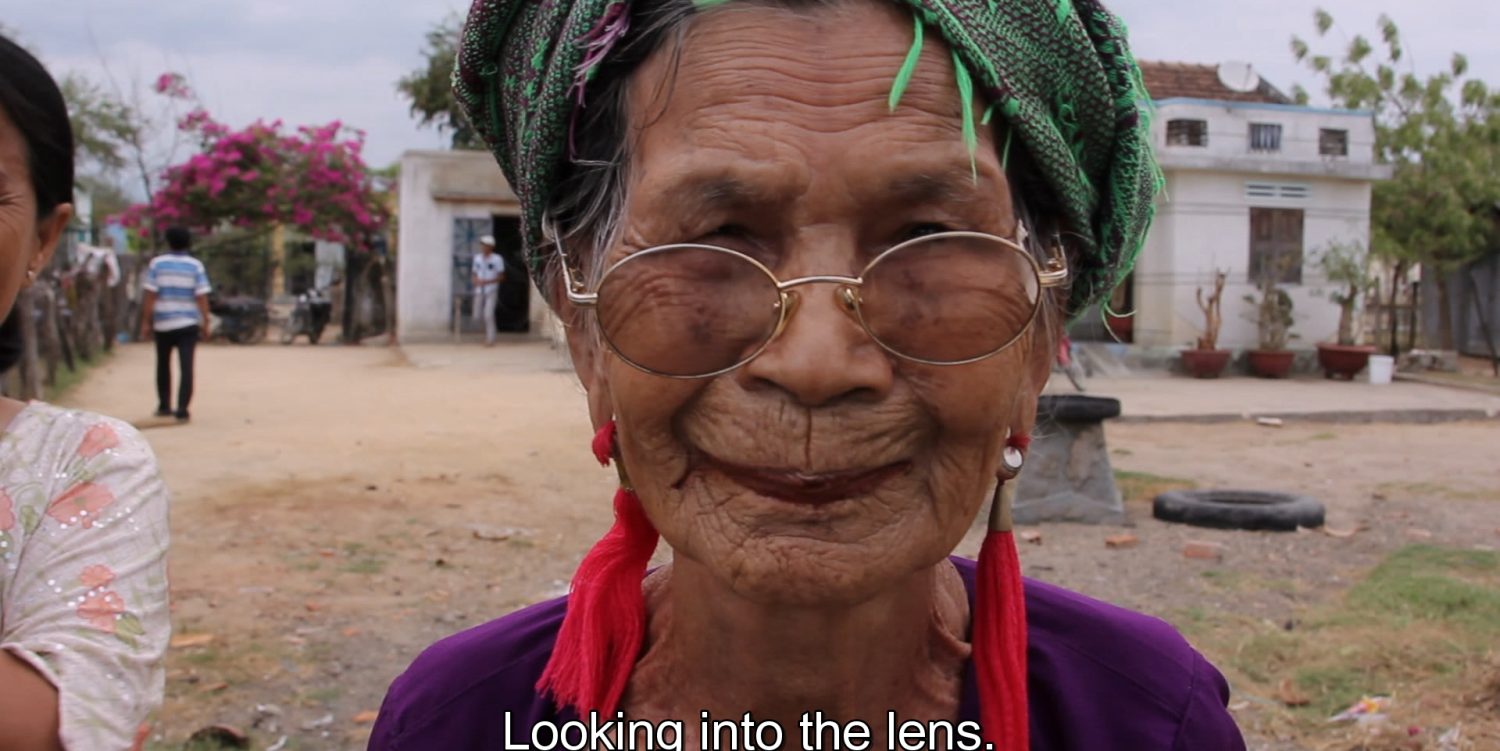
Nguyễn Trinh Thi: Vietnam The Movie and
Letters From Panduranga
Chapter
Market Road
Canton
Cardiff
CF5 1QE
14 January 2024
2:00 pm
Free
Click here to book now
Vietnam | 2015 | 18 | 47’ + 35’ | Nguyễn Trinh Thi
Join us at Chapter for two films from Artes Mundi 10 artist, Nguyễn Trinh Thi, highlighting the Vietnam war and exploring the complex legacy of the cultural and historical occupation.
Vietnam The Movie
Vietnam the Movie uses a carefully structured montage of clips from drama and documentary films to give a chronological account of Vietnamese history from the mid-1950s to the late 1970s, encompassing the end of French colonialism and America’s involvement in the Vietnam War. But this is no conventional history lesson. Rather, the excerpts chosen contrast a variety of external and often oppositional views, ranging from mainstream Hollywood drama to European art-house. Source material from the US includes ‘Apocalypse Now’, ‘Born on the Fourth of July’ and ‘Forrest Gump’, whilst Europe is represented by the works of Harun Farocki, Rainer Werner Fassbinder, Werner Herzog and Jean-Luc Godard. Director Nguyễn Trinh Thi also splices extracts from the films of Nagisa Oshima, Satyajit Ray and Ann Hui into the mix. The result suggests that any ‘true’ picture of Vietnam has been lost to the multiplicity of symbolic purposes to which the country, its people and their tribulations have been put.
Letters From Panduranga
The essay film, made in the form of a letter exchange between a man and a woman, was inspired by the fact that the government of Vietnam plans to build the country’s first two nuclear power plants in Ninh Thuan (formerly known as Panduranga), right at the spiritual heart of the Cham indigenous people, threatening the survival of this ancient matriarchal Hindu culture that stretches back almost two thousand years.
At the border between documentary and fiction, the film shifts audience attention between foreground and background, between intimate portraits and distant landscapes, offering reflections around fieldwork, ethnography, art, and the role of the artist.
Intertwining circumstances of the past, present, and future, the film also unfolds a multi-faceted historical and on-going experience of colonialisms, and looks into the central ideas of power and ideology in our everyday.